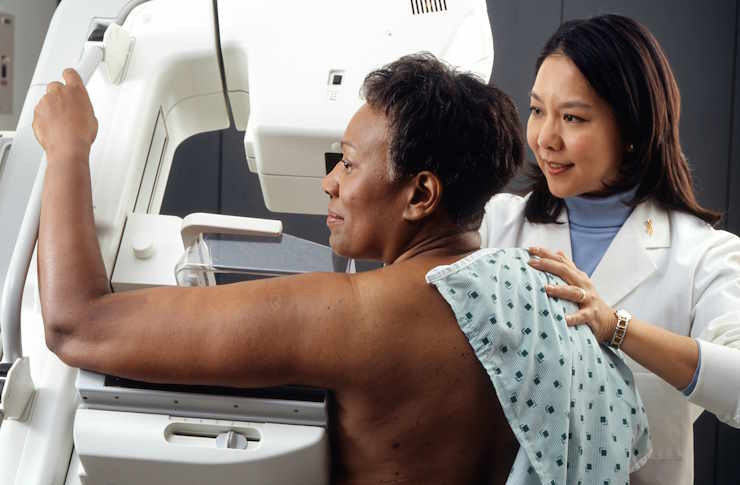The Average Nurse Salary in the US in 2025 – The Full Picture
As healthcare demands continue to evolve, nurse compensation remains a critical consideration for current and aspiring healthcare professionals. The nursing profession's financial landscape is projected to undergo significant changes by 2025, influenced by regional variations, experience levels, specialized credentials, and broader economic factors. Understanding these salary dynamics is essential for career planning in this vital healthcare field.

The nursing profession continues to be one of the most in-demand healthcare careers in the United States, with compensation reflecting both the critical nature of the work and the ongoing national nursing shortage. As we look toward 2025, nursing salaries are expected to evolve in response to various market forces, healthcare policy changes, and regional demands. This comprehensive analysis examines the projected salary landscape for nurses across the country, providing insights into what nursing professionals can expect in terms of compensation in the coming years.
What is the average nurse salary in the US for 2025?
Based on current trends and projections, the average registered nurse (RN) salary in the United States is expected to reach approximately $87,000-$92,000 annually by 2025. This represents a continued upward trajectory from the 2023 average of around $82,750. Several factors are driving this growth, including persistent nursing shortages, increased healthcare demands from an aging population, and the ongoing effects of pandemic-related workforce challenges.
Entry-level nurses with bachelor’s degrees (BSN) are projected to start at around $65,000-$70,000 annually, while those with several years of experience may command salaries exceeding $100,000, particularly in high-demand specialties or leadership positions. Advanced practice registered nurses (APRNs), including nurse practitioners, nurse anesthetists, and nurse midwives, are expected to earn substantially higher salaries, with averages potentially reaching $120,000-$190,000 depending on specialty and location.
Understanding regional nurse pay differences in the US
Nursing salaries in 2025 will continue to show significant regional variation across the United States. States with higher costs of living, particularly on the West Coast and in the Northeast, are projected to maintain their position as the highest-paying regions for nurses. California, Hawaii, Massachusetts, Oregon, and Alaska are expected to remain at the top of the pay scale, with average RN salaries potentially exceeding $110,000 in these areas.
Conversely, many Southern and Midwestern states will likely continue to offer lower average salaries, though these figures must be considered alongside the substantially lower cost of living in these regions. Rural areas generally offer lower base salaries than urban centers, though some rural facilities may provide significant incentives to attract nursing talent to underserved areas. Metropolitan areas with concentrated healthcare systems typically offer higher compensation but come with increased living costs that can offset salary advantages.
How does the impact of experience on nurse salaries 2025 affect earnings?
Experience will remain one of the most significant determinants of nursing compensation in 2025. Entry-level nurses can expect to see substantial salary growth during their first five years in the profession, with particularly notable increases occurring at the three and five-year benchmarks when many facilities provide experience-based raises.
By mid-career (7-15 years), nurses typically see their salaries plateau somewhat, with increases becoming more incremental unless accompanied by additional education, certification, or a move into management roles. Nurses with 15+ years of experience who have remained in clinical roles can expect to earn 30-40% more than their entry-level counterparts, while those who have transitioned into administrative or specialized roles may see even greater differentials.
The experience premium varies by specialty as well. High-acuity areas such as intensive care, emergency, and operating room nursing typically offer steeper experience-based pay increases due to the specialized knowledge required and the higher stakes nature of the work.
Current nursing salary trends and projections for the industry
Several key trends are expected to shape nursing compensation through 2025. The ongoing national nursing shortage, exacerbated by pandemic-related burnout and an aging nursing workforce approaching retirement, continues to create upward pressure on salaries. Healthcare systems are increasingly offering retention bonuses, student loan repayment assistance, and enhanced benefits packages to attract and retain qualified nursing staff.
The growing emphasis on advanced practice roles is another significant trend, with nurse practitioners, clinical nurse specialists, and other advanced practice nurses seeing particularly strong salary growth as healthcare systems look to these professionals to help address primary care provider shortages. Additionally, the expansion of telehealth services is creating new nursing roles with competitive compensation packages that often include remote work options.
Contract and travel nursing positions, which saw unprecedented salary spikes during the pandemic, are expected to normalize somewhat by 2025 but will likely remain at higher levels than pre-pandemic rates, offering lucrative options for nurses willing to accept temporary assignments.
Key factors influencing nurse earnings in 2025
Beyond experience and location, several other factors will significantly impact nursing salaries in 2025. Educational attainment continues to correlate strongly with earning potential, with BSN-prepared nurses earning approximately 10-15% more than their associates-degree counterparts. Nurses with graduate degrees (MSN, DNP, or Ph.D.) can expect substantially higher compensation, particularly if these credentials lead to advanced practice or leadership roles.
Specialty certification represents another pathway to increased earnings. Certifications in areas such as critical care (CCRN), emergency nursing (CEN), or operating room nursing (CNOR) typically command salary premiums of 5-10%. Specialization in high-demand areas such as oncology, nephrology, or psychiatric nursing can also lead to higher compensation.
Shift differentials will continue to be a significant component of many nurses’ total compensation, with night shifts, weekend shifts, and holiday coverage commanding premiums of 10-30% above base pay rates. Union representation also impacts earnings, with unionized facilities typically offering 10-15% higher base salaries along with more structured advancement opportunities and stronger benefits packages.
| Nursing Role | Average Projected Salary (2025) | Key Factors Affecting Compensation |
|---|---|---|
| Registered Nurse (BSN) | $87,000-$92,000 | Location, experience, specialty, shift type |
| Licensed Practical Nurse | $52,000-$58,000 | Geographic region, facility type, experience |
| Nurse Practitioner | $125,000-$140,000 | Specialty, practice setting, state practice authority |
| Certified Registered Nurse Anesthetist | $195,000-$210,000 | Geographic location, facility type, years of experience |
| Nurse Midwife | $115,000-$130,000 | Practice setting, state regulations, urban vs. rural |
| Clinical Nurse Specialist | $105,000-$120,000 | Specialty area, education level, facility type |
Prices, rates, or cost estimates mentioned in this article are based on the latest available information but may change over time. Independent research is advised before making financial decisions.
The nursing profession continues to offer stable, rewarding career options with competitive compensation that reflects the critical importance of these healthcare professionals. As we approach 2025, nurses who strategically navigate their career paths—considering factors such as geographic location, specialty certification, educational advancement, and workplace setting—can maximize their earning potential while providing essential healthcare services. While salary is an important consideration, many nurses find that workplace culture, professional development opportunities, work-life balance, and the intrinsic rewards of patient care are equally important factors in their career satisfaction and longevity in this demanding but fulfilling profession.
This article is for informational purposes only and should not be considered medical advice. Please consult a qualified healthcare professional for personalized guidance and treatment.




